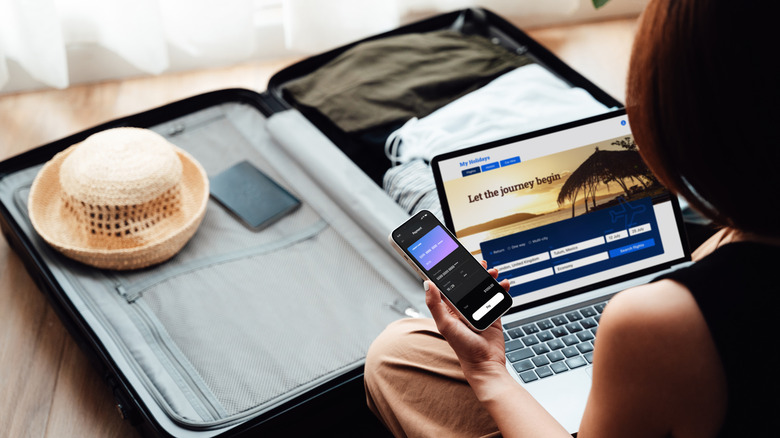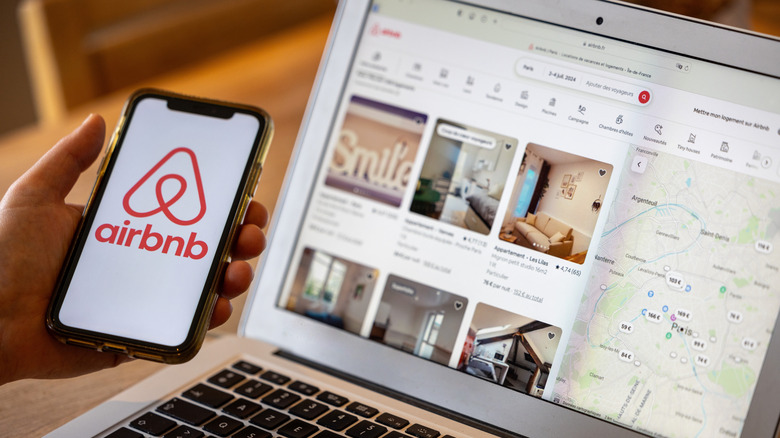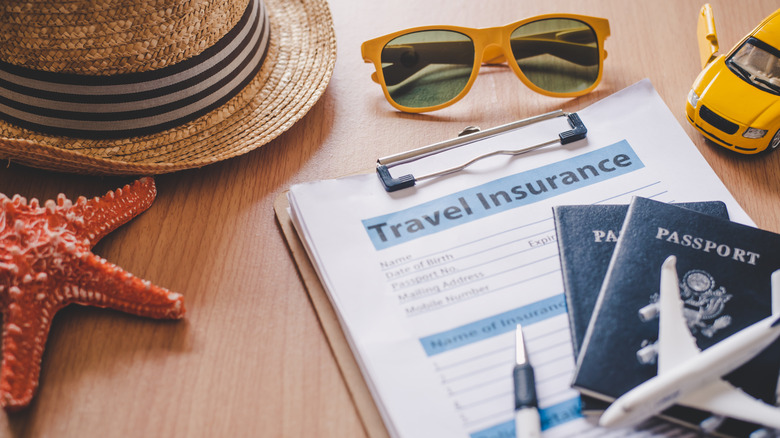How To Cancel Your Vacation Plans In 4 Steps
It's not unusual to make travel plans months or even a year in advance. But because life can throw us curveballs, everyone is likely to have to cancel a vacation at some point. What happens if you've reserved (or have already paid for) a flight, hotel, cruise, or tour but can't take it? Here's what to do to cancel your trip.
Step 1: Contact the companies that booked your trip or that you have reservations with
Every airline, cruise line, hotel, vacation home rental company, and rental car agency has a cancellation policy — which you should read before booking — so check your reservation for cancellation instructions and then call the company directly. If you meet with resistance when requesting a refund or future credit, follow up with a second call; be persistent but respectful since another representative or supervisor may be more sympathetic or have the power to override policy on a case-by-case basis.
How to cancel a hotel reservation
For bookings made directly with a hotel company — at a rate that allows cancellation — the only action required may be clicking a link on your confirmation email or calling customer service. If you booked a category allowing cancellation (up to 48 hours prior to arrival is typical), you won't be penalized. If your reservation required a deposit (common during holiday periods), call rather than cancel online to ensure you'll get a refund.
If you booked a non-refundable rate — these are typically the lowest rates offered — you'll be charged even if you cancel. Call the hotel's customer service line to see if an exception is possible given your circumstances. If dealing with a major hotel chain, ask the agent to put you on hold and call the reserved property directly to see if they will agree to a no-charge cancellation. It's a longshot, but you may get partial credit or credit for a future stay.
How to cancel a flight
Most economy-class airfares aren't refundable. Rather, they're changeable and subject to a fee ranging from $50 to $250. If you cancel, you'll receive credit for the fare paid, minus the change fee, which must then be used by a certain date (typically one year from the original purchase, although policies vary). Many airlines, however, now have strict non-cancellation policies for their cheapest seats — what they call "basic economy" — so you'll lose all money paid if you cancel. If you booked a refundable fare — which airlines offer at a significantly higher price — you should be able to cancel for any reason for a refund.
Did you book a low-cost flight using an online travel agency such as Expedia, Priceline, or Orbitz? Getting credit or a refund may be more difficult (see below).
At certain times — during natural disasters such as volcanic eruptions and hurricanes or global conflicts and pandemics — some airlines waive the change fee and issue credit for the full fare paid to be used toward a future flight within a longer timeframe. The only time you'll be issued a refund is if the airline cancels your flight. If you want to cancel, call the airline (versus canceling online) and ask for a refund rather than credit; you probably won't get it, but if you have frequent flier status and/or a compelling case for cancellation it can't hurt to try. Another strategy is to wait as long as you can — if the airline cancels the flight, the Department of Transportation requires them to issue you a refund.
How to cancel through a travel agency
If you booked a cancelable hotel reservation via an online travel agency (OTA) such as Expedia.com, Hotels.com, or Booking.com, canceling should be just a click or call away. It will be difficult, however, getting a refund or credit if you booked at the site's lowest price. These heavily promoted rates — purposely designed to be enticing — are almost always non-refundable. So, if you need to cancel, you'll be out of luck.
Keep in mind, however, that these third-party OTAs are bound by the cancellation policies of hotels and airlines, so ask the OTA's rep to keep you on the line as they call the travel provider you booked to ask if there is any room for negotiation. You might end up with a voucher for future travel.
How to cancel a cruise trip
Cruise lines have detailed cancellation policies because many passengers book far in advance, paying a deposit (usually several hundred dollars) to reserve a stateroom and then the balance of the fare typically 90 days before embarkation. If you need to cancel, do so by the specific date noted on your booking confirmation to receive a future cruise credit in the deposit amount, minus a change fee. Cancel after that date but before your full payment is due and you'll lose your deposit. Cancel after you've paid in full and you'll lose a percentage of what you paid, depending on how close to the sailing date you cancel.
Because this industry can be highly impacted by global emergencies, cruise lines sometimes temporarily adopt more flexible cancellation policies. Many offer future cruise credit for the total fare paid — meaning you can cancel and rebook at a date up to a year or two away — while some provide full refunds to those who request them. Again, call to discuss your options.
How to cancel rental homes and tours
Cancellation policies vary widely among these providers — which range from vacation home rentals via Airbnb and VRBO to luxury tours by by companies such as Tauck and Trafalgar — so check your contract at booking. VRBO's website, for example, notes that cancellation policies vary by home owner, while Tauck's website clearly specifies per-person cancellation fees depending on the tour and the number of days prior to travel that you cancel.
If you aren't satisfied with the response from customer service, ask to speak with a supervisor or call back and talk to another agent. Persistence sometimes pays off. If you've been a loyal customer, don't be afraid to ask for a partial refund or future credit.
How to cancel rental car reservations
These are among the easiest reservations to cancel, so long as you do so with advance notice. The only exception: reservations that were pre-paid to nab a low rate, which will likely incur a cancellation fee. Call customer service to check your options.
Step 2: Check with your credit card company
If you've already paid for your flight, hotel stay, cruise, or tour with a credit card and need to cancel, call your credit card company. Some cards have travel insurance as a benefit, which could help you recoup part of the money you spent.
It never hurts to check with your card company about reimbursement for cancelation if you feel the travel provider is not being fair or forthright about reimbursement or future credit.
Step 3: Check with your travel insurance company
If you're unable to recoup your travel costs directly from an airline, hotel, tour company, or cruise line and you bought travel insurance at the time of booking that included trip-cancellation coverage, give the insurer a call. Not every reason for canceling is covered under most policies — your contract will detail what is; fear of traveling to a specific region, for example, isn't — but having a policy is likely to result in less out-of-pocket loss.
And if you bought cancel-for-any-reason (CFAR) coverage, which is priced about 50 percent more, you can usually recoup about 75 percent of the pre-paid cost of your trip.
Step 4: Think twice about non-refundable deals in the future
Canceling a travel reservation is easier if you book a rate that's refundable or changeable. So keep that in mind the next time you weigh a price difference between a flexible booking and a non-refundable deal that seems like a steal.










